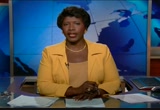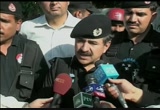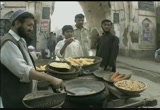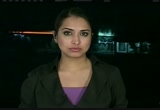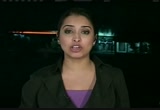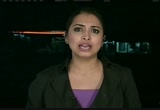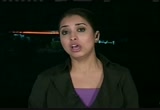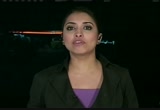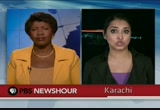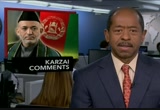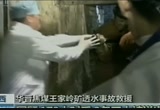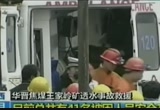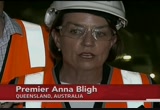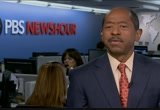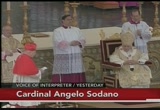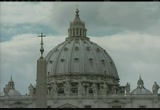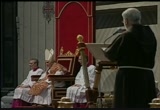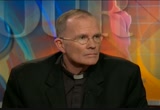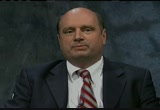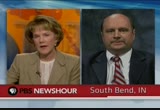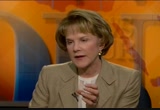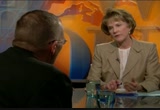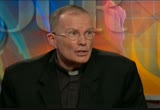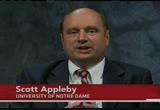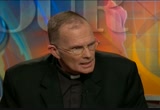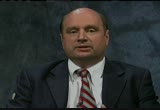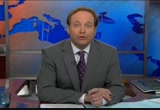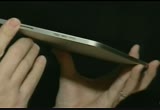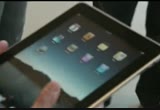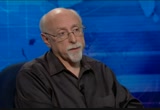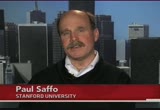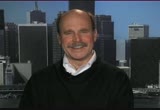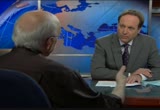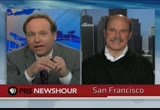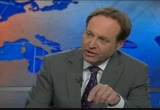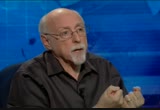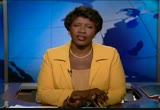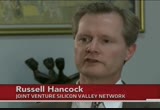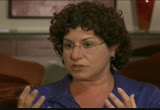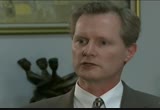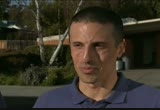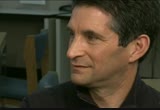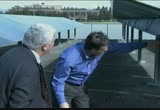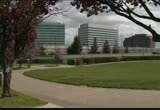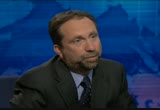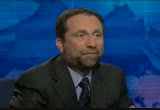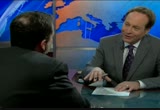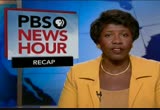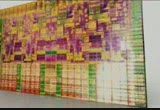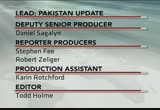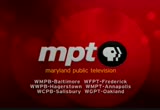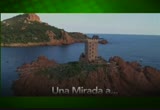tv PBS News Hour PBS April 5, 2010 6:00pm-7:00pm EDT
6:00 pm
captioning sponsored by macneil/lehrer productions >> ifill: good evening. i'm gwen ifill. taliban militants attacked the u.s. consulate in peshawar, pakistan. >> brown: and i'm jeffrey brown. on the newshour tonight, the deadly assault occurred just hours after a suicide bombing at a nearby rally. we get the latest from saima mohsin of dawn tv in pakistan. >> ifill: then, margaret warner looks at vatican pushback and u.s. reaction to the latest controversies roiling the catholic church. >> brown: and two technology
6:01 pm
stories. we explore apple's new i-pad and the future of personal computing. >> ifill: and spencer michels reports on the tech downturn in a place that once led the charge. silicon valley may be losing its edge. that could affect not only california but the nation. >> brown: plus, we preview a new documentary uncovering the lost stories of arabs helping jews during the holocaust. >> ifill: that's all ahead on tonight's newshour. major funding for the pbs newshour has been provided by:
6:03 pm
foundation, working to solve social and environmental problems at home and around the world. and with the ongoing support of these institutions and foundations. and... this program was made possible by the corporation for public broadcasting. and by contributions to your pbs station from viewers like you. thank you. >> ifill: a wave of violence hit pakistan today. militants attacked a political rally, killing 45 pakistanis. and a u.s. diplomatic mission came under attack, the first time that's happened since 2006. all americans were accounted for, but four pakistanis were killed. the first explosion shook the city of peshawar early in the afternoon. within 20 yards of the u.s. consulate's main gate. a suicide attacker blew up his
6:04 pm
car at a check point, sending a massive cloud of smoke and debris into the sky. moments later as some of the injured were carried away a second car bomb exploded at another check point as mill tans wearing security uniforms fired mortars and grenades. a security camera captured the moment of the second blast. as two of the attackers stood in front of the car. pakistani police said four were killed. some still wearing suicide vests. none got inside the compound. >> two suicide bombers tried to enter , but when it exploded those suicide bombers were also hit by the detonating wave. they also died at this spot. they were dead. >> ifill: a short time later as investigators examined the debris, the pakistani taliban claimed responsibility and promised more attacks to come. u.s. officials condemned the assault. >> the attacks today are a
6:05 pm
part of a wave of violence perpetrated by brutal extremists who seek to undermine pakistan's democracy and so fear and discord. >> ifill: hours before the lateist attack another suicide bomber killed dozens of pakistanis at a political rally. the city is the capital of the northwest province and the gateway to the afghan border region where taliban forces are based. there had been a lull in violence over the last three months. that's partly because of stepped up pakistani security and an increase in u.s. drone aircraft attacks. the new york times today cited unnamed government and insurgent sources as saying the strikes have cast a pall of fear over the militants. it said they stopped meeting in large groups in abandoned satellite phones to avoid being detected. today's attacks showed militants are still capable of coordinated mayhem.
6:06 pm
they came at a time of heightened political tension. last week the country's anti-corruption agency asked swiss authorities to reopen a case against pakistani president . but the swiss declined. the president who has been under increasing pressure today urged parliament to strip his office of some of its sweeping power. for more we go to a senior anchor for for more, we go to saima mohsin, a senior anchor for dawn tv, a 24-hour english-language news channel in pakistan. i spoke to her a short time ago from karachi. it seems like these attacks had been declining but now today's again. how unsettling was this attack especially the one on the u.s. consulate? >> well, this attack today, gwen, came as a huge shock to everyone in peshawar and right across the country, as you say, there has been a lull in the... in these attacks most recently. probably most likely because we've seen a lot of pressure on militants because of
6:07 pm
several security operations in the tribal areas and, of course, a successive drone attacks pounding the tribal areas in pakistan. but this attack was well coordinated and it must have been well planned. that's what analysts are telling me here today, that this was probably months in the making. >> ifill: how much anti-american sentiment has been playing into these kinds of attacks? >> well, the taliban today came out with a statement saying that this was a direct targeting of the u.s. consulate in peshawar. they say that there are many more planned attacks to come specifically against americans in pakistan. we have over the past year or two seen a build-up of what has been termed as anti-american sentiment. of course just 15 months ago we saw that dreadful attack on a convoy attending a school inauguration where we saw two u.s. security personnel being killed in that attack.
6:08 pm
they were not there on duty. they were there because they had been invited because they had been helping with that school project. so we have seen attacks against u.s. personnel. there is a real anti-u.s. sentiment here. we saw a lot of ... we've seen much controversy specifically about black water. we even heard from eric prince himself in an interview saying he was set to work on a project in pakistan. that is causing much angst here and particularly if you pick up any national newspaper, there is often discussions or articles pointing out how many americans are living in pakistan, what they're doing, why are they here and being questioned for their presence. >> ifill: whether it's the attack involving the u.s. consulate or the one attacking the political party farther from peshawar, how much of this is caused by the taliban? you mentioned the taliban.
6:09 pm
how much is their influence growing? >> well, it might seem in terms of visibility that their influence is growing. we're seeing them spreading out into urban areas as they're flushed out of the tribal areas, gwen, but that doesn't mean that the taliban is growing in strength. it means that when they are hitting out, they're hitting out hard. you mentioned that attack in lower beard today. absolutely devastating. these people were out. it was an organized celebration by the local political party, the anp. that is where the taliban struck. and when these kinds of gatherings are targeted it's obvious that it gains a lot of publicity. it also instills a lot of fear so people simply don't want to come out again. >> ifill: how much do political tensions drive this sort of activity? we saw today one of the things that was almost overshadowed by these attacks was this big speech that the president was scheduled to give before parliament.
6:10 pm
>> the big question everyone was asking today was were these attacks the response to the constitutional amendment? was it because of the renaming of the group. was it to disrupt this democratic process that is now underway and in the making in pakistan? you mentioned president zadari's address. it was his third in 18 months of being president of pakistan. and it was an historic moment where an 18th constitutional amendment is being put forward. so there is this particle legal of how much disruption the taliban want to cause on a major day for democracy and governance in pakistan happening in islamabad . >> ifill: will the president be weakened by this new constitutional amendment which takes powers away from him and gives it back to the prime minister? >> it takes powers away from the president but powers that weren't meant to be his in the first place. this article
6:11 pm
58 2-b has become infamous in pakistan. i don't think there's a pakistani who hasn't heard it. because this article has been most controversial. both been azeer bhutto lost their governments to a president who dissolved their government. article 58 2-b if you just let me explain very quickly. it gives the president the power to dissolve the government at will. when he sees fit. an entire government could collapse at the hands of a very powerful president who then takes over. as we saw with previous governments, as i mentioned, this was brought back into the constitution by president musharraf many years ago. and when the ppp government came into power they had vowed that they would remove it. it's taken them almost three years but they have now tabled that. yes, it will weaken president zadari to some extent. those weren't powers of his in the first place.
6:12 pm
as he said i am here to empower parliament. it's all about democracy in pakistan these days. >> ifill: thank you so much. >> thank you. >> brown: now, the other news of the day. here's kwame holman in our newsroom. >> holman: u.s. officials raised new concerns today about afghan president hamid karzai. on saturday, karzai told afghan lawmakers he might join the taliban rather than submit to foreign pressure to reform his government. it's unclear whether karzai was serious, but in washington today, state department spokesman p.j. crowley said this. >> that particular comment is a bit of a head scratcher. beyond that, you know, we were troubled by some of his comments last week. we think we've addressed them. i can't explain, you know, what he said about the taliban. he is the elected leader of afghanistan. we're working closely with he and his government. >> holman: at the white house, press secretary robert gibbs
6:13 pm
said a may 12 meeting between karzai and president obama is still on schedule. in iraq, gunmen killed a shiite family of six outside baghdad. the victims included four children. the attack followed an especially violent weekend in baghdad. on sunday, three suicide car bombings killed more than 40 iraqis near several foreign embassies. iraqi officials said militants are trying to undermine efforts to form a new government. 115 miners were rescued today from a flooded coal mine in northern china. they'd been trapped there since march 28. we have a report narrated by john ray of independent television news. >> reporter: they are calling the miracle from 500 meters deep. after more than week entombed underground no one expected there to be so many survivors nor even any at all. rescue teams had just about given up hope when they detected faint signs of life. so no wonder they clapped as one by one they bring the living rather than the dead to the surface. one miner managed feebley to
6:14 pm
return the applause. the drama has played out on live television, and the relief is tinged by anger as an accident relatives say never should have happened. warning signs had been ignored by managers long before miners broke into a flooded shaft. some survivors have spoken of attaching themselves by their belts to a rock wall as water swept by and hanging there for days before klammering into a mining cart that floated past. in hospital, his eyes shielded against the light, this man mumbled a few words. i'm in great pain, he says. doctors say they are suffering from hypothermia, dehydration and shock. the safety record of china's coal mines has improved, but it is still the worst in the world. >> holman: chinese officials
6:15 pm
said another 38 men still are trapped in the mine. there was no word on their fate. oceangoing cleanup crews raced today to contain an oil spill on australia's great barrier reef. a chinese coal ship rammed into part of the reef off the coast of queensland late saturday. today, a two-mile-long oil slick could be seen trailing from the damaged ship. about two tons of the 1,000 tons of fuel aboard the vessel already have spilled out. the premier of queensland said an investigation is under way. >> this ship has acted he will lily going into these restricted areas. the commonwealth government is now investigating how this happened and i hope frankly that they throw the book at them. >> holman: the great barrier reef extends more than 1,800 miles. it's a united nations world heritage site. wall street started the week on a high note after last friday's report that the economy added jobs in march. the dow jones industrial average gained 46 points to close at 10,973. the nasdaq rose nearly 27 points
6:16 pm
to close at 2429. and the price of oil closed well above $86 a barrel in new york trading, the highest in 18 months. the federal government told toyota today to pay more than $16 million, a record civil penalty for an automaker. transportation secretary ray lahood said toyota should have notified regulators much sooner about gas pedals that were sticking. the company has two weeks to accept or contest the fine. toyota is an underwriter of the newshour, for the record. those are some of the day's main stories. i'll be back at the end of the program with a preview of what you'll find tonight on the newshour's web site. for now, back to jeff. >> brown: and still to come on the newshour, the i-pad and the future of computing; troubled times for silicon valley; and jews, arabs, and the holocaust. but first, the pope's response to the scandals that have rocked the catholic church. margaret warner has the story. >> warner: on a soggy sunday in rome, thousands of the faithful celebrated easter
6:17 pm
mass in st. peter's square. but amid the age old ritual came a break with tradition. cardinal anglo, dean of the college of cardinals irb issued a ringing tribute to pope benedict xvi lauding him as the unfailing rock of the catholic church. and he dismissed allegations about the pope's alleged role in the church's sexual abuse scandal. >> holy father, on your side are the people of god who do not let themselves be influenced by the petty gossip of the moment, by the trials which sometimes affect the community of believers. >> warner: for his part pope benedict did not address the allegations swirling around him. yesterday's service followed four months of revelations of sex abuse by priests throughout europe, from ireland to germany, italy and elsewhere. and of a pattern of covering
6:18 pm
up by church authorities. in addition, questions have been raised about two cases benedict himself was involved in in the years before he was pope. in 1980 as archbishop rats zinger of munich germany he was involved in a decision to move a priest into therapy after he had been accused of sexually abusing minors. at issue is whether ratzinger was also involved in letting the priest return to pastoral duties within weeks. the priest ultimately was convicted of other sexual abuse charges in 1986. a second case involves father lawrence murphy of milwaukee. he was accused of sexually abusing nearly 200 deaf boys from the 1950s to the 1970s. murphy was put on trial by the u.s. church, but he appealed to the vatican office in charge of abuse cases run by then cardinal ratzinger. the vatican halted the trial in 1998 and murphy died that same year. jeff anderson represents many
6:19 pm
of father murphy's alleged victims. he spoke today in st. paul, minnesota. >> my feeling about the vatican is that they're the ones that are responsible for complicity in these crimes. i feel very strongly that we have a moral and legal imperative to pursue them to hold them accountable. >> warner: increasingly the vatican has responded to criticism of those cases by framing them as attacks on the pontiff and the catholic faith itself. on good friday, the pope's personal preacher compared the current atmosphere to, quote, collective violence used against the jewish people. he later voiced regret for his words. and the top vatican official in charge of church doctrine, car natural william, said last week there's a coordinated assault on the church and the pope. but some high church officials said the vatican must do more to come to grips with the allegations. >> crimes against children have indeed been committed
6:20 pm
. many catholics who are aware of such crimes and did not act to report them bring shame on us all. >> warner: the vatican announced today it is cooperating with u.s. efforts to extradite an indian priest. he's accused much sexually assaulting a 14-year-old girl in minnesota. we take a closer look now at how the pope and the vatican are responding to the recent revelations and allegations. it comes from the very reverend david o'connell, president of catholic university. and scott appleby, the author of several books about the church and catholicism. he's a professor of history at the university of notre dame. welcome to you both. professor appleby, beginning with you, how effectively or ineffectively do you think the pope and the vatican have dealt with this latest chapter in the clergy sex abuse scandal? >> i think it's generally been an ineffective response
6:21 pm
because the church is not always speaking with a consistent voice. the pope has been very good overall during his pontificate on this crisis, on the sexual abuse crisis. he has spoken with a pretty consistent message. but in the last couple of weeks as the european scandal has spread , a number of voices within the church have been giving mixed messages including the good friday message that compared the suffering of the jews to the recent problems of the church. and a few other comments on the part of members of hierarchy that haven't really added to a consistent message of remorse, repentance, regret, and a resolve to make the church more accountable for these sins and crimes. >> warner: is that what you're hearing, father o'connell, a lack of remorse, repentance and also accountability? >> i think we have to realize that there will be an effort to be supportive of the pope.
6:22 pm
that's a very important fact here. as dr. appleby noted, this particular pope has been particularly rigorous and particularly aggressive in addressing the sexual abuse crisis throughout his pontificate, even before his pontificate began. his recent letter to the catholics of ireland, i think, mapped out a very clear picture of what he believes and how he feels in response to this terrible, terrible situation. >> yet, professor appleby, the pope's letter to the irish catholics or the catholics of ireland while praised for the tone of repentance and remorse and they're going to have an investigation there, there was no accountability for, say, bishops who had allowed priests to be transferred, for example. was there? >> no, and i believe that's the final part of the puzzle. that the church has to acknowledge that the bishops have a very important role, obviously, overall in
6:23 pm
governing the church. when there are mistakes that are made and in this case there were very serious mistakes made of judgment and really of lack of awareness and ignorance on the part of ... on several bishops in terms of the depth of this problem, that the bishops as well as the priests and other members. church have to be held accountable. there has to be some way that the pope acknowledges the faults of the hierarchy and calls the hierarchy itself to repentance. >> warner: father o'connell, of course, then we have the allegations that the pope himself while he was archbishop and again as a cardinal was part of this hierarchy that tended in the views of victims anyway to be more protective of the priests accused than they were, than it was of the victims. to what degree... i mean that is certainly a new element here, is it not, compared to, say, when the u.s. scandals broke? and how is that playing into the dynamics of what's going on and what we're hearing from the vatican?
6:24 pm
>> this is all very, very complicated matter. i would like to say that in the letter to the catholics of ireland, the pope does speak in probably the strongest language i've seen about the failures of the bishops as leaders of the church, as shepherds of the church to address the problem in an appropriate and effective way. i think that needs to be said. as far as the pope's own involvement as an archbishop, as a cardinal in germany, i think that's what you're referring to. >> warner: the germany case and the one involving the priest in milwaukee. >> we have remember, i think, in all fairness that we tend to judge situations that happened 20, 30, 40 years ago by our knowledge of today and our standards of today. i don't know that that's always altogether fair. the pope acted as cardinal archbishop in a way that was normal for the hierarchy of
6:25 pm
his day. we look at it with hindsight and say, well, he should have done this and he should have done that. you have to understand , when someone is in charge of a very large diocese as archbishop ratzinger was, cardinal ratzinger was at that time, it's very natural and normal that they would handle certain matters to personnel directors, vicars and other people who works in the chancery operation. that's what happened here. we don't know. that's the fact. we don't know what cardinal ratzinger did or did not know. we have to be careful in asking for judgment and asking for the head of the cardinal on a silver platter. >> warner: professor appleby, some at least in the vatican have responded to the allegations about the pope, about then cardinal ratzinger which attacking the media and saying the media has been unfair. do you think that's an appropriate response? what's your take on that? >> well, certainly the media is not innocent in the way that the scandal has been covered because many of the
6:26 pm
stories are repetitive. i believe there is an element of bias in the media. on the other hand, the media did not create this crisis or this scandal. most of the reporting by the "new york times" and other news institutions including the newshour is balanced, fair, accurate and reports what is known. and does so quite well. the church has set the table for the media in this case. one of the problems that the church needs to address, i think is precisely its own communications and practices because the church has been slow to respond. i think it's overall been inconsistent in its message and it's on the defensive. every statement made by every bishop and the pope should begin with apology, remorse and move on to engage the substance of the question. and the church needs to speak with one voice. whatever the media does or doesn't do really isn't a question. the church is the representative of christ on earth. it has to be the voice of
6:27 pm
compassion, when necessary repentance, healing. it shouldn't be wasting its time distracting itself by worrying about the media. it has to take care of its own business. >> warner: you're nodding your head. >> mark twain said it well. you don't pick a fight with someone who buys ink by the barrel. i don't see what we have to gain by attacking the media. in a sense if it were not for some media reports , perhaps this issue might not have been addressed... might not have been addressed as aggressively as it has. as dr. appleby indicates there is some bias. that's very clear as you listen to the reporting. >> warner: let me ask you before we finish because you were in rome last week and saw the pope. what is your sense of how he's responding to this? >> well, my meeting with the pope was for a different purpose . he looked tired to me. he looked like he's aged significantly since the last time i saw him when he visited catholic university in 2008.
6:28 pm
and some of his collaborators said to me that they thought the pope was feeling the burden of this very deeply and very.... >> warner: of this scandal? >> of this scandal and the news of it. >> warner: briefly from you, professor appleby, what do you think the pope should do now? >> i think the pope needs to continue in the vein of comments he's made throughout his pontificate acknowledging remorse for the scandal, again as he did in the letter to the irish bishops, calling on the hierarchy to also acknowledge their role and focusing on the victims. on their suffering. >> warner: do you think though he has to address the allegations or the questions that have been raised about himself? >> actually, i think that that part of the reporting has been exaggerated. we don't know exactly what cardinal ratzinger, the archbishop knew at the time. compared to the behavior of some of the other bishops in this now european and american
6:29 pm
scandal, the pope's behavior is not yet at a level or hasn't reported to have been at a level where i think he has to address his own involvement at this point. if other disclosures come forward and the situation changes then that might change. i don't think we're there yet. >> warner: gentlemen we have to leave it there. there are those who disagree with you, professor appleby, but thank you both very much for your views. >> thank you. >> brown: now, two technology updates. we start with the gadget being promoted as apple's-- and maybe computing's-- "next big thing." >> 3, 2, 1. >> brown: the i-pad, apple's new tablet computer hit stores early saturday. across the country thousands of customers line d up to be the first to take one home. >> i waited here from 3:00 in the morning. >> brown: combining many
6:30 pm
features of a laptop and a smart phone though it doesn't have a phone capability yet, the i-pad's release had been much anticipated and hotly hyped since it was introduced in january. >> just look how quickly it makes delicious salsa. >> brown: today apple said it had sold more than 300,000 i- pads on the first day, more than the number of i-phones sold on its first day but well below what some analysts had forecast. starting at $499, the i-pad is a touch screen tablet. half inch thick and weighing 1.5 pounds. with a nearly 10-inch color screen. it plays music and video, brougss the web, runs the macintosh system with access to thousands of applications and can be used for creating content much like a personal computer. the i-pad is also apple's first foray into the world of e books complete with its own electronic bookstore. it will go head to head with amazon's popular kindle in the growing e-book market. with all the hype though came
6:31 pm
some disappointments about what the i-pad doesn't yet do. no camera. no support for some web video files. and no ability to run applications simultaneously. >> it's not really a fuel computer device at this point. you know, it's more of kind of like a kindle on steroids. >> i'm going to hold off. i'm going to hold off. i just got the i-phone. maybe next year. >> brown: a number of other new tablet computers are set to be released this year so the i-pad will soon face plenty of competition. still analysts expect apple's version will sell more than one million units in its first three months. more on the new tablets and the future of computing now more on the new tablets and the future of computing now, from walt mossberg, personal technology columnist for the "wall street journal." he's the co-executive editor of the web site all things digital. and paul saffo, a writer and technology forecaster in silicon valley. he's also a visiting scholar at stanford university. walt mossberg, first, tell us more about what this is. what it is intended to be. >> jeff, it's really a new
6:32 pm
kind of portable computer. when we think of a portable computer, we typically today think of a laptop. those aren't going away. this is something that's been imagined by people in the computer business for years. never taken off. but this is a full, robust computer. it doesn't have every capability of a laptop but it is much more than a e-reader, much more than a big i-phone. >> brown: the early reviews, yours included suggest it does a lot of things really well and some things we're still not sure about. >> i think the biggest disappointment as was mentioned in the intro is there's no web cam. it would be a perfect thing for videoconferencing if it had that. it's not to say they couldn't add it later. multitasking which means the ability to do more than one thing at once like you can on a computer. it's not at least yet on here . there are a number of other things you wish it could do. but on the other hand, it does
6:33 pm
run a full blown word processor, a full blown spreadsheet, a full blown presentation program that apple rewrote from the ground up from their computer version to run on touch. >> brown: paul saffo, a lot of talk here in early days about this notion of being a game changer, whether this somehow changes the game. what game are we talking about? >> well, you know, apple is a company with a history of delivering big new media paradigms that go on to create new sectors. they did it in '84 with the macintosh which gave us wind owes computing. a little over ten years ago they did it with mp-3 and music and the i-pod. five years ago they did it with the i-phone. i think this is at least comparable in size to those where what they've done is they legitimizeed a whole new space of a device not just personal. it's intimate. you can carry this and two bags of groceries.
6:34 pm
it's a media tablet. it's not a laptop without a keyboard. it's an entirely new kind of device that is, you know, it's just the start but it is the opening shot in what's going to grow very quickly into a substantial industry. >> brown: staying with you, paul, there are other tablets that have been introduced. we saw that person in our little clip saying i just got my. >>-phone. i mean part of the trick here is that apple or any company doing this has to convince consumers that they need one more gadget. right? >> that's right. early on this is one more gadget. but the important thing is that it's apple doing the introduction. this is a company that has lots of true believers because they have a track record of delivering truly new things. and i think that gives this sector a real boost. it actually is very good for apple's competition as well as apple. >> brown: walt, how do you see this sort of notion of game change? explain to people what do we mean by the game?
6:35 pm
>> the game is the game of portable computering. not the game of being the kindle, e-reader which does essentially one thing but the game of portable computing. i would only say i agree with paul that... but i would be a slightly more cautious person. i think it is a potential game- changer. why do i say potential? because i think if people perceive it as one more thing to carry, if most people perceive it as a third thing to carry, it won't have as much appeal as it could be. i think people have to perceive it as something that allows them to leave their laptop home or not open it around the house for, you know, maybe not 100% of the things they do on their laptop but for more than a lot of the time. i know those are vague terms. that's the way i kind of think about it. if you use your laptop for surfing the web, consuming media, you know, doing email and then doing maybe a little light con ten creation, say a
6:36 pm
school paper or something and you decide you're comfortable doing it on this, this thing will take off the way paul says. if not enough people feel that way and just think it's an extra burden to carry, then that's the risk apple is is taking. as he points out, apple is a little different than some of these other companies. it takes really big risks. many of them that he listed have paid off. a few haven't. we're going to see. >> brown: paul saffo, why does apple get so much attention? here we are looking at this ourselves, i know. is it because of this history of taking risks? is it also, i guess, they're great marketers as well too. >> they're hitting on all cylinders. they have a demonstrated history of delivering revolutionary technologies. their marketing is brilliant all the way down to making sure that they have lots of donuts to give out on saturday to people waiting in line. but it also comes down to design. there's something about apple
6:37 pm
that its devices are more than the sum of its parts. the way you can tell it in the next week or two is people are going to discover that their i- pad, even though it's just the first machine and purely just for early adoptors. it's not for a mainstream yet. they're going to discover that it does as much for their sense of cool when the machine is off as when it's actually on. they're there are not a lot of computers that do that, that don't have the apple brand. >> brown: walt mossberg, i mentioned that there are others coming. what's the gamble here for all these companys? they're trying to figure... we've been talking about the way we as consumers use computers. and the way content is delivered to us. what's the gamble that companies now have to make in terms of coming up with a model for the future? >> well, to be fair because we don't want to be a commercial for apple. dell, hp and numerous others that are primarily identified with windows computing are
6:38 pm
coming out with tablets. a few of them will actually run windows control id by ... controlled by finger touch. others will run limux and some will run android. the gamble they're taking, testify, is that they can come up with something that has a simple user interface which this does, this has the same user interface as the i-phone which has caught on very well. but underneath once you use that simple interface, you actually get more capability and sophistication than you get on a smart phone. that's one. the other gamble they're taking is that they don't cannibalize their laptop sales because paul is right that this is just the beginning but if this trend does catch on , some people are going to say i'm not going to buy that netbook by is a cheap laptop. i'm not going to buy the next laptop. i'll stay with my old laptop and go with the tablet. they have a lot of business decisions about pricing and
6:39 pm
margins and that sort of thing. >> brown: paul, real briefly. google is out there with another model we're waiting more of a web-based model, right? there's a lot more to come here. >> this is and wide open field. apple's made it legitimate. but the days are early. there are lots of company the space. we're going to see lots of fights between the companies to the benefit of the consumers. >> brown: paul saffo and walt mossberg, thank you both very much. >> ifill: now newshour correspondent spencer michels reports on what's become of america's high tech capital. >> reporter: starting in the 1960s california's silicon valley named for the material used to make most computer chips became the booming technological hub of the country and perhaps the world. companies like apple were selling the future. >> our macintosh is here. the future is better than you expected.
6:40 pm
>> reporter: this was home to many hot companies and exciting innovations. microprocessors, software, biomedical devices, the internet. smart phones and much more. investments, profits and employment soared. and the valley became known as the engine sparking the u.s. economy. but today there are clouds on the horizon, and the denisons of the valley know it. >> our topic this evening is silicon valley itself. what's happening to silicon valley? >> reporter: russell hancock whose group joint venture silicon valley network co-sponsored a new study of the economic health of the region, hosted a recent radio show with two economists. doug hent ondid the reports's research and laid out the problems. >> lost 90,000 jobs. it was a tough year for us in terms of employment and our real per capita income has been falling at a faster rate than the nation. >> reporter: and steven levy
6:41 pm
said silicon valley like the rest of the country is feeling the pain. >> the country is in a fierce competition with countries like china and india and others who are educating and investing and competing. >> reporter: hancock says silicon valley can't afford to rest on its reputation. >> silicon valley used to be the center of the universe. no question. we were the epicenter. no longer the case. to meet stiff competition, you have to have your act together. you have to be firing on all of the cylinders. we can't say that in silicon valley right now because there are so many things that are not working for us. >> reporter: signs of a downturn are hard to miss. you can see the vacant buildings on both sides of highway 101, the so-called main street of silicon valley. from 2008 to 2009, vacancies in commercial real estate jumped 33% . parking lots are empty where spaces were reap sently hard
6:42 pm
to get. the downturn is topic-a for practically everybody. some of that talk occurs on the four-mile hiking loop around the stanford dish. the radio telescope near the university. it's a favorite place for judy to walk with colleagues. she's cisco's former chief technology officer and the author of "closing the innovation gap." she agrees silicon valley is losing its edge. >> we've lost our balance. we've lost our way in terms of the health of that eco system, as i call it. we have what i call an innovation deficit. we are harvesting the seeds that were planted 10, 20, 30 years. but we're no longer planting seeds at the right rate. >> reporter: she says that long-term risk-taking which spurred america's high-tech industry is eroding. >> everybody has become very short-term focused. everybody wants rewards instantly. so they tend to go to the
6:43 pm
thing that can pay off in a year or two years or three years. as opposed to working on things that may fail or on may pay off big in ten years. >> reporter: currently 60% of scientific talent in the valley is foreign born. highly educated workers from abroad used to flock here to go to school and then stay to work. but the numbers are down. it's harder to get a work visa and expanding high-tech industries in china and india are using more home-grown talent. >> we're not granting as many degrees to the scientists and engineers coming from china and india. they're finding silicon valley a less attractive place to be. their home economies have become far more attractive. >> reporter: california schools aren't picking up the slack by churning out top high- tech workers. >> the question becomes if they're not coming from other places, do we have a home grown work force that can move in to those highly creative, highly skilled professions? and our indicators are not
6:44 pm
good. >> reporter: and home grown engineers are scared off by silicon valley's notoriously high housing prices. a stanford engineering grad works in his father's company installing phones and solar panels. >> i'm really concerned about the future of the valley. i grew up here. it turns out that most of the guys i went to high school with moved to different parts of the united states. it turns out it's hard to afford a home here. i earn about the median income. i can't afford a home. i'm renting. >> reporter: for those who remain here, the downturn can be devastating. state employment centers are busy trying to help highly educated techees whose companies have laid them off at a time when high unemployment also plagued the non- tech sectors. we talked with several of them including rich ballasara, a graphic designer. >> my mortgage is underwater.
6:45 pm
i've been out of work since the beginning of june. >> reporter: paul, a ph.d. in physics, tried to figure out what went wrong. >> the valley has certainly changed character in the time i've been here. there are things going in our nation that are working against us. tax laws that favor sending operations overseas. not having to pay taxes on it. >> we can't rest on ideas that we are the king of the microchip. >> reporter: some remain positive like former document manager and high tech salesman robert weinstein and project coordinator pat. >> i'm an optimist. it has to get better because it can't get much worse, right? i mean, these things tend to be cyclical. >> even though, yeah, we're... it's kind of down right now and the people are leaving, everybody is kind of looking for the next great thing. >> reporter: his former employer, applied materials,
6:46 pm
figured the next big thing was green energy. one of silicon valley's oldest and biggest companies with 12,000 employees it laid off 10% of its work force and moved almost all manufacturing overseas. originally applied materials was a maker of machines that manufactured chips, the brains in computers. but today, says chief technology officer mark pinto, the company is also successfully building machines that make these advanced solar panels. and it is such a large presence in china that pinto himself and his family are moving there. >> there's been a lot of investment in energy in start- ups. we're one of the few i think big companys that have made a bet in this area. but it's already paid off. we've had last year a billion dollars of revenue in solar after getting in the market really in three years. >> reporter: venture capital, money raised from private and institutional investors which
6:47 pm
has been the life blood of silicon valley start-ups is in short supply with venture capitalists unwilling to take risks like they used to. judy says all this is hurting the national economy. >> the valley is a very critical part of the overall national eco system. it's one of the strongest in the country. it's very important to the country to have silicon valley thrive. i would argue that it's very important to the global eco system to have the u.s. thrive. >> reporter: if and when the national economy improves, silicon valley expects things will get better here as well. but whether the valley remains the innovative engine it once was remains to be seen. >> brown: finally tonight, a story of the holocaust and survival through a different lens. a new documentary, "among the righteous," explores the efforts
6:48 pm
of arabs to save the lives of jews during world war ii. the film is based on the work of middle east expert robert satloff, and was produced by macneil/lehrer productions, and narrated by robert macneil. here's a short clip from the beginning of the film. >> on a hill in jerusalem, a haunting memorial commemorates the thousands of jewish communities destroyed in the holocaust. the names of europe's lost ghettos are engraved in our memories. but the story of what happened to jewish communities in arab lands is largely forgotten. further up the hill a tree- shaded garden preserves the names of non-jews who risked
6:49 pm
their lives to save jewish lives. people like oskar schindler and raul wallenberg. they are known as the righteous among the nations. but for the writer and historian robert satloff, one nation is strangely absent. >> more than 20,000 non-jews here recognized for helping, saving jews during the holocaust. there's about 6 or so muslims. here's albanians. bosnians. there's a tree planted up on the hill in memory of the one turk. strangely though out of more than 20,000 names there's not a single arab. >> if arab schindlers ever existed, it might change how arabs view the holocaust and how arabs and jews view each other. this is the story of one man's quest to find an arab who
6:50 pm
saved a jew. sneft rob satloff is director of the... he joins me now. welcome. this has largely been unexplored and unhonored territory, right? >> that's right. there's very few histories of this region, of arab countries during the holocaust and none before looked at the stories of arabs who helped jews during this period. >> brown: a lot of it takes place in north africa. a lot of stories here. but as an overview, what did you find? >> first of all, what i found is that the holocaust is an arab story too. during three years from 1940 to 1943 nazi germany and its allies controlled arab countries and imparted the persecution of jews those countries. half a million jews. arabs in these countries played a role very much like
6:51 pm
european civilians played. most were by-standers. some were collaborators. and a small but very important number helped jews facing persecution. >> brown: why was the story untold? why is so little known? >> the story of why rescuers is unknown i think has two parts. one is jews, historians, westerners in general, we didn't look that hard. on the other side, arabs and especially the arab rescuers and their families, many didn't want to be find. after 50, 60 years of the arab- israeli conflict being an overlay of this entire period. >> brown: why does it matter? i mean, what different does it make to you to tell these stories? >> well, i set out on a mission nine years ago trying to find a hopeful , inclusive way to talk with arabs about the holocaust. in so doing trying to combat
6:52 pm
ignorance and even denial of the holocaust in many arab societies, not to confront arabs but to include them in the story. hopefully thereby getting rid of this deep-seated ignorance in some places denial of the holocaust. these stories of rescuers is such a hopeful, positive set of stories that i think that they open a window for jews and arabs, westerners and muslims in general to talk about this most controversial of topics. >> brown: we're not going to go into all the individual stories here but interestingly enough a lot of this is territory that continues to confound and be controversial on both sides, right? arab and israeli. >> this is a very controversial topic. arabs don't want to talk about the holocaust for fear of validating israel. there are some some israel, jews in general, who don't even recognize that survivors from north africa are survivors let alone that the arabs who rescued them deserve to be known as righteous.
6:53 pm
the title of the film. >> brown: a reminder among the righteous airs a week from tonight next monday evening on most pbs stations. robert satloff, thank you very much. >> thank you. >> ifill: again, the major developments of the day. militants in pakistan killed 45 people at a political rally. they also tried and failed to storm the u.s. consulate in peshawar. 2 others were missing. in northern china. the newshour is always online. kwame holman, in our newsroom, previews what's there. kwame? >> holman: we have a link to the web site for "among the righteous," where there are more stories, a timeline, maps, and resources for teachers. on the silicon valley story, you can watch more of spencer's interview with mark pinto, the executive who is moving to china to oversee factories there. read reviews, pro and con, of the i-pad. and on art beat, our weekly poem: jehanne dubrow reads
6:54 pm
"nonessential equipment." all that and more is on our web site, newshour.pbs.org. gwen? >> ifill: and that's the newshour for tonight. i'm gwen ifill. >> brown: and i'm jeffrey brown. we'll see you online, and again here tomorrow evening. thank you, and good night. major funding for the pbs newshour is provided by: >> what the world needs now is energy. the energy to get the economy humming again. the energy to tackle challenges like climate change. what if that energy came from an energy company? every day, chevron invests $62 million in people, in ideas-- seeking, teaching, building. fueling growth around the world to move us all ahead. this is the power of human energy. chevron.
6:55 pm
6:56 pm
and with the ongoing support of these institutions and foundations. and... this program was made possible by the corporation for public broadcasting. and by contributions to your pbs station from viewers like you. thank you. captioning sponsored by macneil/lehrer productions captioned by media access group at wgbh access.wgbh.org
1,807 Views
IN COLLECTIONS
WMPT (PBS) Television Archive
Television Archive  Television Archive News Search Service
Television Archive News Search Service 
Uploaded by TV Archive on

 Live Music Archive
Live Music Archive Librivox Free Audio
Librivox Free Audio Metropolitan Museum
Metropolitan Museum Cleveland Museum of Art
Cleveland Museum of Art Internet Arcade
Internet Arcade Console Living Room
Console Living Room Books to Borrow
Books to Borrow Open Library
Open Library TV News
TV News Understanding 9/11
Understanding 9/11


